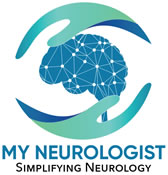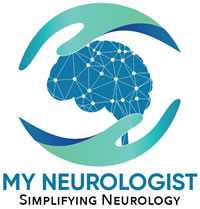FLD is loss of cognitive function due to a problem in frontal lobe(s) of brain. It is not a single disease and has wide variety of presentation and clinical features.
What exactly is the problem in FLD?
Multiple types of problems can impact the frontal lobes including trauma, stroke, or degeneration of neurons (similar to the process in Alzheimer disease). In classical FLD, it is the degeneration of neurons that leads to shrinkage of frontal lobes, which causes many of its symptoms.
What is the function of frontal lobes of brain?
Frontal part of the brain or the frontal lobes is what really distinguishes humans from other animals. Humans have the most developed frontal lobes. Another aspect of this part of the brain is that it takes the longest time to fully mature. Frontal lobes may not fully mature until up to mid-twenties, a little earlier in women. In a way, frontal lobe dysfunction may lead to loss of what we may call humanity. Some key functions of the frontal lobes include: motor control, language, memory analysis and cataloging, personality, decision making especially about future events, appropriateness of behavior, emotional communication (ability to read emotions and communicate without verbal language), impulse control (what to do, when to do, and what not to do in different situations), and what is understood as executive functions.
What are the symptoms of frontal lobe dysfunction?
There are multiple problems that can occur, depending upon the location of disease. Following is an outline:
A: Weakness: An area of the frontal lobe controls movements of face, arm, and leg on the opposite side. An abnormality can cause hemiparesis on the opposite side.
B: Aphasia: A different area, usually located in the left frontal lobe controls our ability to communicate, both with verbal and written language. A problem in that area can result in partial or complete lack of ability to speak or produce words or sentences.
C: Change in personality: This usually happen from larger frontal lobe dysfunction. It can happen from trauma or slowly from degeneration of neurons. It may result in lack of flexibility, impulsiveness, and risk taking behavior.
D: Executive dysfunction: One example of this is the inability to quickly review information and make logical correct decision.
E: Disinhibition: Patient may lose moral or social inhibitions, and act in an inappropriate manner.
F: Loss of Bladder control: Similar to behavioral disinhibition, patient may lose the control to delay or control urination.
G: Apathy: Inability to fully understand and convey emotions, and difficulty with emotion based communication.
H: Memory problems: Unlike Alzheimer disease, memory problem is not the main issue in frontal lobe disorder. It can be noticeable in advanced cases.
I: Eating disorder: Patient may overeat, or insist on eating certain things, in a way having an abnormal impulse or tendency to overeat.
J: Difficulty walking and balancing.
What is typical presentation of FLD?
It usually presents as change in personality leading to disinhibition, impulsivity, stubbornness, irrationality, and lack of insight. Unlike Alzheimer disease, memory may not be affected, at least in early stages.
What are causes of FLD?
Following are common causes FLD:
- Trauma
- Degeneration of neurons
- Stroke
- Tumor
Are there different types of FLD?
FLD is not a single illness. Presentation can vary depending which part of frontal lobe is involved. It may be mostly a frontal lobe problem presenting as dramatic change in personality, with features described above, which sometimes is called Pick’s disease. It may also present with more complex symptoms due to involvement of both frontal and temporal lobes, which is called fronto-temporal dementia.
Is there a treatment of FLD?
In many ways, management of FLD is more difficult than Alzheimer, due to patient’s lack of insight and cooperation. There is no approved specific drug for FLD. It is treated like many other dementias, based upon symptoms. Please review the treatment of dementia in the section Dementia.
What conditions may look like FLD?
Many psychiatric conditions may share symptoms of FLD. In fact, in my experience, it is not uncommon to see selective atrophy of frontal lobes in many patients diagnosed with bipolar and similar disorder. In my opinion, FLD is much more common, and many times misdiagnosed as a psychiatric illness. With no specific treatment available, it does not seem to make much practical difference to the patient.
Where can I get more information about FLD?


Leave a Reply
Your email is safe with us.
You must be logged in to post a comment.